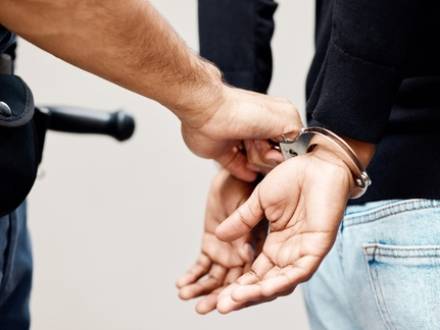Law Enforcement Leaders Seek to Reduce the Use of Force by Police
 Police violence has been an area of concern in recent years. While the death of George Floyd in 2020 after a police officer kneeled on his neck for several minutes sparked protests and calls for reform, this was only one of many incidents in which people died in encounters with police. Following an extensive investigation that identified a large number of unnecessary deaths, law enforcement leaders have issued new guidance that is meant to help reduce these incidents and protect people from harm during encounters with police.
Police violence has been an area of concern in recent years. While the death of George Floyd in 2020 after a police officer kneeled on his neck for several minutes sparked protests and calls for reform, this was only one of many incidents in which people died in encounters with police. Following an extensive investigation that identified a large number of unnecessary deaths, law enforcement leaders have issued new guidance that is meant to help reduce these incidents and protect people from harm during encounters with police.
While ongoing reforms may help reduce injuries and deaths due to police violence, many people are still affected by these issues. For those who have been arrested and charged with crimes, an attorney with experience in criminal law can not only help defend against a conviction, but they can address police misconduct and ensure that a defendant’s rights will be protected.
Recommendations to Help Prevent Deaths in Encounters With Police
The Associated Press has conducted an investigation into situations where people died after being subdued by police officers. After reviewing records from cases that spanned a period of 10 years, investigators identified more than 1,000 situations where people were killed after police subdued them using methods that were intended to be non-lethal. These cases occurred throughout the United States, affecting people from all demographics. However, Black people were disproportionately affected, accounting for around one third of all deaths despite making up 12 percent of the population in the U.S.
In response to these findings, the Police Executive Research Forum, a group of leaders in the field of law enforcement, has released recommendations that are meant to help reduce the risk of deaths when police officers restrain people. Their guidance specifically addresses "medical-behavioral emergencies," which are situations where people experience medical issues that police may interpret as behavioral problems in which they are refusing to comply with instructions. These situations often involve people who are experiencing mental health crises or issues related to the use of drugs.
Reformers emphasize that people in these situations should be treated as patients rather than suspects. Officers should be able to identify medical-behavioral emergencies and coordinate with emergency medical services, fire departments, and dispatchers to provide the proper care. They should also take steps to de-escalate situations rather than making problems worse by yelling, giving repeated commands, or using tools that involve flashing lights or loud noises.
The use of restraint is also a significant concern in these cases. Police should evaluate whether restraints are needed to address risks that a person will harm themselves or others, and they should only use restraints when absolutely necessary. They should also be aware of the risks of prone restraint in which a person is pinned in a face-down position for an extended period of time. This type of restraint can affect a person’s lungs and heart, and a person should be placed on their side or in a seated position as quickly as possible. Just because a person can speak, this does not mean that they can breathe freely. In far too many situations, officers have ignored statements that suspects are struggling to breathe, which has led to deaths.
Sedation is also an issue that may play a role in medical-behavioral emergencies. In some cases, police officers have encouraged emergency medical technicians to administer drugs to calm a person down or immobilize them when they are being transported. There have been numerous situations where people have died after being given sedatives while they were restrained. Medics should be able to make decisions about sedation without pressure or influence from police, and they should also be able to intervene when inappropriate restraints are being used in ways that may threaten the lives of suspects.
Contact Our Connecticut Criminal Defense Attorney
While ongoing efforts are being made to address police violence and misconduct, there are still many situations where suspects are mistreated, resulting in injuries or deaths. At Woolf & Ross Law Firm, LLC, our Hartford criminal defense lawyer can help ensure that inappropriate restraints during arrests or other forms of police misconduct will be addressed correctly during a criminal case. We will work to develop a successful defense strategy while protecting our client’s rights. Contact us today by calling 860-290-8690 to arrange a free consultation and get the legal representation you need.






